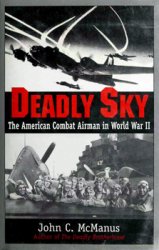The combined American and Soviet turn away fTom ambitious, open-ended visions of decolonization to a more immediate emphasis on coercion, force, and control in the mid-to-late 1960s intersected with the passing away of the first generation of postcolonial leaders. As non-aligned nationalists were replaced in coups by military juntas or revolutionary regimes, the Third World became increasingly polarized. Resolute, dictatorial anti-Communists like Suharto in Indonesia, Mobutu in Zaire, and the Shah of Iran received substantial US support and, under the Nixon administration, came to be seen as regional bulwarks against the dangers of Marxist insurgency. At the same time, however, revolutionary ideologies, often introduced through the writings of dissident intellectuals in the West, made new headway among activists and students across Southeast Asia and Africa and helped turn liberation movements in more clearly Marxist directions.
Vietnam in particular became a source ofinspiration for revolutionaries and guerrilla movements. While few Third World radicals devoted close, serious study to Vietnam’s experience, Hanoi’s determined stand in the face of American technological might became an appealing symbol of determined resistance and the power of popular revolutionary war. Despite Johnson’s massive deployment of US combat troops and Nixon’s sharp intensification of the bombing campaign and invasion of Cambodia, the revolutionaries had struggled on. As Che Guevara proclaimed, the Vietnamese offered a lesson to the world: "Since the imperialists are using the threat of war to blackmail humanity, the correct response is not to fear war. Attack hard and without let-up at every point of confrontation - that must be the general tactic of the people."379 Where radicals came to see Soviet policies as too conservative and fainthearted, the 1968 Tet Offensive stirred revolutionary imaginations across Southeast Asia and Africa.
Impressed by Hanoi’s resilience and the effect of the war on American politics, Soviet leaders also drew important conclusions of their own in Vietnam. With Soviet help, a disciplined Marxist-Leninist party like that in the DRV was capable of raising the political costs of war to the point that the United States would ultimately decide to pull back its forces. If the United States proved unwilling or unable to stop a revolution in Vietnam, where it had made an immense commitment, then the chances of successful revolutions in other areas looked to be on the rise.
As several scholars have argued, the beginnings of superpower detente also made increased Cold War conflict in the Third World more, not less, likely. America’s growing frustration in Vietnam contributed to the rise of detente, and Nixon and Henry Kissinger hoped that a diplomatic engagement with the Soviets might persuade them to hold their North Vietnamese allies in check. They hoped, through a strategy of "linkage," to offer the Soviets "recognition of their strategic parity" and "a promise of access to Western capital and technology." In return, "they asked Moscow to recognize the mutuality of superpower interest in stability, especially in maintaining order in the Third World."380 Yet as Raymond Garthoff explains, detente was "not a clearly defined concept held in common." While Soviet policymakers did expect that detente might help prevent war between the superpowers, they also "insisted loudly that peaceful coexistence among states did not mean an end to 'the class struggle’ or the 'national liberation movement’ in colonial or neocolonial situations." Where Nixon and Kissinger anticipated that detente would result in a Soviet acceptance of the status quo in the Third World, Brezhnev believed that the Soviet Union retained a free hand to challenge the United States’ global engagement there. Convinced that the Communist victory in Vietnam demonstrated that the "correlation of forces" in the world was shifting to the benefit of the USSR, Brezhnev thought it would be a mistake not to press the advantage.381
The conflicting expectations came to a head most dramatically in Angola. When the Portuguese dictatorship collapsed in April 1974 and that country erupted into civil war among three competing independence movements, the United States and South Africa both intervened in an attempt to prevent the Marxist-oriented Popular Movement for the Liberation of Angola (MPLA) from coming to power. An MPLA victory, South Africa feared, might promote radical attacks on apartheid in Namibia and South Africa itself. Worried about the damage to American credibility done by defeat in Vietnam, Kissinger hoped that an easy win in Angola might repair the domestic Cold War consensus and restore US prestige abroad. By the following summer, US weapons deliveries, CIA advisers, and South African military trainers were deployed there. When it appeared that the MPLA was still edging toward victory, South African troops invaded the country in October 1975 with US approval.
Although they were concerned by the factional splits within the MPLA, the USSR provided the movement with essential military equipment. The decisive contribution, however, came from Cuba. Since the early 1960s, Castro’s commitment to anti-imperialism, vision of Third World solidarity, and opposition to white supremacy had led Cuba to support revolutionary movements in Algeria, Zaire, and Guinea-Bissau. Acting on its own initiative, Cuba responded to the South African invasion in November 1975 by deploying 36,000 troops, repelling the assault, and winning the war for the MPLA. As Piero Gleijeses points out, the Soviet Union did not direct Cuban policy.382 Yet once it became clear that victory was in sight, Moscow was quick to proclaim the triumph in Angola as evidence of Soviet leadership in the cause of Third World liberation.
The wider international ramifications of the Angolan war were significant. Among the immediate losers was the People’s Republic of China. By the early 1970s, the PRC had become so committed to opposing Soviet influence that it sacrificed previous commitments to anticapitalist liberation as well as regional diplomatic objectives. As the Soviets and their Cuban allies backed the MPLA, China threw its weight toward the rival National Union for the Total Independence of Angola (UNITA), a nativist, populist movement, and the National Front for the Liberation of Angola (FNLA), a nationalist organization without a clearly defined ideological stance. When South Africa invaded Angola, the PRC then found itself in the untenable position of fighting on the same side as the United States and, more crucially, Pretoria’s white supremacist regime. Although China stopped training FNLA soldiers within days of the South African attack, the result was a diplomatic disaster: "Its erstwhile clients, the FNLA and UNITA, had been defeated, its relations with the victorious MPLA had been destroyed, and its image as a disinterested and principled friend of African causes had been badly damaged."383 Gerald Ford’s administration also watched in frustration as the US Congress voted in January 1976 to cut off all funding for further US covert action in Angola. The failed attempt to bolster American credibility had only succeeded in further solidifying the anti-interventionist political climate at home. The American cooperation with apartheid South Africa also did grave damage to US relations with other African states, most of which moved quickly to recognize the MPLA government.
The MPLA victory in Angola, however, also had ironic results. Although the USSR gained little in a strategic sense, the Angolan war helped harden a growing perception among US policymakers that the Soviets were exploiting the process of detente and violating its terms. When the USSR went on to promote the Ethiopian revolution, especially after its declaration of Marxist-Leninist principles in 1976, the concept of detente came under fierce political attack in the United States, a process that helped push Jimmy Carter’s administration toward a harder line and contributed to the rise of a powerful, rightwing, moralistic, anti-Soviet consensus under Ronald Reagan. Gains in Angola and Ethiopia, therefore, helped jeopardize the arms-limitation agreements that, ultimately, were of far greater value to Moscow. Perhaps even more seriously, those victories encouraged the Soviet conviction that by supporting Marxist parties and moving quickly with new military capabilities they could continue to reshape the course of the Third World, an expectation that would lead to disaster in Afghanistan. The Soviets, in that sense, were about to learn the hard lessons that intervention in Vietnam had taught the United States. Overwhelming military and technological superiority would prove a poor vehicle with which to support a regime lacking real political legitimacy. The forces of culture, religion, and history at work in the Third World, moreover, were not subject to easy manipulation or rapid transformation. The result, moreover, would contribute to the overextension and final crisis of the Soviet state.
The greatest damage done by the Cold War in the Third World, however, was surely suffered by those who lived there. American and Soviet policymakers,

19. The image of Che Guevara, already dead for four years, decorating a Chilean slum in 1971. Guevara and the Cuban revolution continued to provide inspiration for many Third World radicals in the 1970s.
Viewing the postcolonial world as inherently malleable, promoted competing ideologies of accelerated development. Believing that their national security depended on the spread of their visions of modernization or socialist transformation, they also deployed tremendous force to propagate them. Many Third World elites, eager for rapid economic and social progress, also embraced those approaches and employed repression in the name of transformation. The sources of violence in Africa, Asia, and Latin America were often grounded in anticolonial movements and domestic conflicts along lines of class and ethnicity that pre-dated the Cold War itself. But the intervention of the United States, the Soviet Union, and China made them far more devastating. In this respect, the worry that Nkrumah expressed before his New York audience in 1958 appears prophetic. As the Cold War arrived in Africa and the rest of the Third World, the goals of peaceful, independently charted material advance receded into the distance.




 World History
World History









